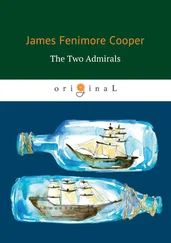There is an uneasy desire among a vast many well-disposed persons to get the fruits of the Christian Faith, without troubling themselves about the Faith itself. This is done under the sanction of Peace Societies, Temperance and Moral Reform Societies, in which the end is too often mistaken for the means. When the Almighty sent His Son on earth, it was to point out the way in which all this was to be brought about, by means of the Church; but men have so frittered away that body of divine organization, through their divisions and subdivisions, all arising from human conceit, that it is no longer regarded as the agency it was so obviously intended to be, and various contrivances are to be employed as substitutes for that which proceeded directly from the Son of God!
Among the efforts of the day, however, there is one connected with the moral improvement of the sailor that commands our profound respect. Cut off from most of the charities of life for so large a portion of his time, deprived altogether of association with the gentler and better portions of the other sex, and living a man in a degree proscribed, amid the many signs of advancement that distinguish the age, it was time that he should be remembered and singled out, and become the subject of combined and Christian philanthropy. There is much reason to believe that the effort, now making in the right direction and under proper auspices, will be successful; and that it will cause the lash to be laid aside in the best and most rational manner, – by rendering its use unnecessary.
COOPERSTOWN, August 20, 1829.
“Sullen waves, incessant rolling,
Rudely dash’d against her sides.”
Song
A single glance at the map will make the reader acquainted with the position of the eastern coast of the Island of Great Britain, as connected with the shores of the opposite continent. Together they form the boundaries of the small sea that has for ages been known to the world as the scene of maritime exploits, and as the great avenue through which commerce and war have conducted the fleets of the northern nations of Europe. Over this sea the islanders long asserted a jurisdiction, exceeding that which reason concedes to any power on the highway of nations, and which frequently led to conflicts that caused an expenditure of blood and treasure, utterly disproportioned to the advantages that can ever arise from the maintenance of a useless and abstract right. It is across the waters of this disputed ocean that we shall attempt to conduct our readers, selecting a period for our incidents that has a peculiar interest for every American, not only because it was the birthday of his nation, but because it was also the era when reason and common sense began to take the place of custom and feudal practices in the management of the affairs of nations.
Soon after the events of the revolution had involved the kingdoms of France and Spain, and the republics of Holland, in our quarrel, a group of laborers was collected in a field that lay exposed to the winds of the ocean, on the north-eastern coast of England. These men were lightening their toil, and cheering the gloom of a day in December, by uttering their crude opinions on the political aspects of the times. The fact that England was engaged in a war with some of her dependencies on the other side of the Atlantic had long been known to them, after the manner that faint rumors of distant and uninteresting events gain on the ear; but now that nations, with whom she had been used to battle, were armed against her in the quarrel, the din of war had disturbed the quiet even of these secluded and illiterate rustics. The principal speakers, on the occasion, were a Scotch drover, who was waiting the leisure of the occupant of the fields, and an Irish laborer, who had found his way across the Channel, and thus far over the island, in quest of employment.
“The Nagurs wouldn’t have been a job at all for ould England, letting alone Ireland,” said the latter, “if these French and Spanishers hadn’t been troubling themselves in the matter. I’m sure its but little reason I have for thanking them, if a man is to kape as sober as a praist at mass, for fear he should find himself a souldier, and he knowing nothing about the same.”
“Hoot! mon! ye ken but little of raising an airmy in Ireland, if ye mak’ a drum o’ a whiskey keg,” said the drover, winking to the listeners. “Noo, in the north, they ca’ a gathering of the folk, and follow the pipes as graciously as ye wad journey kirkward o’ a Sabbath morn. I’ve seen a’ the names o’ a Heeland raj’ment on a sma’ bit paper, that ye might cover wi’ a leddy’s hand. They war’ a’ Camerons and M’Donalds, though they paraded sax hundred men! But what ha’ ye gotten here! That chield has an ow’r liking to the land for a seafaring body; an’ if the bottom o’ the sea be onything like the top o’t, he’s in gr’at danger o’ a shipwreck!”
This unexpected change in the discourse drew all eyes on the object toward which the staff of the observant drover was pointed. To the utter amazement of every individual present, a small vessel was seen moving slowly round a point of land that formed one of the sides of the little bay, to which the field the laborers were in composed the other. There was something very peculiar in the externals of this unusual visitor, which added in no small degree to the surprise created by her appearance in that retired place. None but the smallest vessels, and those rarely, or, at long intervals, a desperate smuggler, were ever known to venture so close to the land, amid the sand-bars and sunken rocks with which that immediate coast abounded. The adventurous mariners who now attempted this dangerous navigation in so wanton, and, apparently, so heedless a manner, were in a low black schooner, whose hull seemed utterly disproportioned to the raking masts it upheld, which, in their turn, supported a lighter set of spars, that tapered away until their upper extremities appeared no larger than the lazy pennant, that in vain endeavored to display its length in the light breeze.
The short day of that high northern latitude was already drawing to a close, and the sun was throwing his parting rays obliquely across the waters, touching the gloomy waves here and there with streaks of pale light. The stormy winds of the German Ocean were apparently lulled to rest; and, though the incessant rolling of the surge on the shore heightened the gloomy character of the hour and the view, the light ripple that ruffled the sleeping billows was produced by a gentle air, that blew directly from the land. Notwithstanding this favorable circumstance, there was something threatening in the aspect of the ocean, which was speaking in hollow but deep murmurs, like a volcano on the eve of an eruption, that greatly heightened the feelings of amazement and dread with which the peasants beheld this extraordinary interruption to the quiet of their little bay. With no other sails spread to the action of the air than her heavy mainsail, and one of those light jibs that projected far beyond her bows, the vessel glided over the water with a grace and facility that seemed magical to the beholders, who turned their wondering looks from the schooner to each other in silent amazement. At length the drover spoke in a low solemn voice:
“He’s a bold chield that steers her! and if that bit craft has wood in her bottom, like the brigantines that ply between Lon’on and the Frith at Leith, he’s in mair danger than a prudent mon could wish. Ay! he’s by the big rock that shows his head when the tide runs low, but it’s no mortal man who can steer long in the road he’s journeying and not speedily find land wi’ water a-top o’t.”
The little schooner, however, still held her way among the rocks and sand-pits, making such slight deviations in her course as proved her to be under the direction of one who knew his danger, until she entered as far into the bay as prudence could at all justify, when her canvas was gathered into folds, seemingly without the agency of hands, and the vessel, after rolling for a few minutes on the long billows that hove in from the ocean, swung round in the currents of the tide, and was held by her anchor.
Читать дальше












